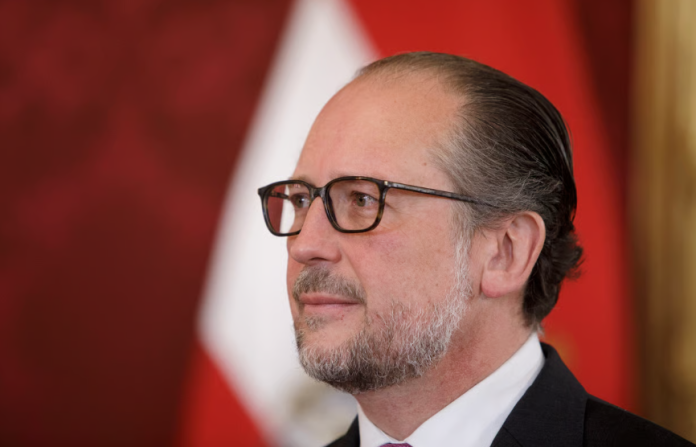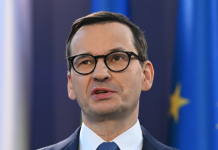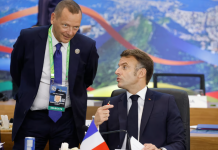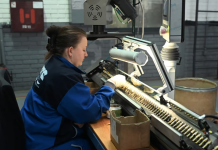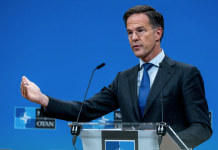BRUSSELS ― Austrian interim Chancellor Alexander Schallenberg admitted to EU chiefs his country faces “trying times” ― but vowed to protect European values if its first far-right leader since World War II takes office.
In a sign of the panic gripping Vienna and the European Union, Schallenberg raced to Brussels on his first full weekday in the job, holding separate talks with European Council President Antonio Costa, foreign affairs chief Kaja Kallas, and European Parliament President Roberta Metsola.
Schallenberg “came to reassure everyone they will work to put the EU’s red lines in the coalition agreement, especially on Ukraine support,” said one EU official briefed on the discussions in Brussels.
Pro-Russia Herbert Kickl, leader of Austria’s far-right Freedom Party (FPÖ), is bidding to form a government after the breakdown of coalition talks among Vienna’s mainstream parties.
Schallenberg, Austria’s foreign minister and member of the center-right Austrian People’s Party (ÖVP), took over as interim chancellor on Friday, after Karl Nehammer resigned earlier this month.
Austria “will remain a reliable partner and a strong partner within the European Union” as his party continues coalition negotiations with the FPÖ, he told journalists on Tuesday evening.
During these “trying times and surprising developments,” the EU should “have trust” in the strength of Austria’s democratic institutions. He added that the rule of law, separation of powers, fundamental rights, and international law “are non-negotiable” in coalition talks.
Mainstream Austrian parties initially refused to negotiate a government with the FPÖ, which won most seats in September’s elections. But after talks among his party, liberals, and socialists failed, Austrian President Alexander Van der Bellen tasked Kickl with trying to form the government.
The FPÖ, a pro-Russia and Euroskeptic party rooted in Nazi ideology, has previously been a junior coalition partner, but they have never scored the chancellorship, which now is a very real possibility.
As populist forces surge across the continent and anti-EU narratives gain traction, as is the case in the Netherlands, Hungary, and Slovakia, Brussels reacted with alarm at the prospect of a far-right head of government joining the the European Council, the bloc’s highest decision-making body.
After the talks, Costa stressed that Austria “has been a very engaged European member state,” and said he trusted that will continue. Similarly, Metsola said she addressed “how the EU can continue to be the answer to people’s concerns in the future.”

